Norman Eugene “Clint” Walker May 30, 1927 – May 21, 2018
Last year Clint Walker passed away at the age of 90.
Walker died of congestive heart failure at a hospital in his longtime home of Grass Valley, California at age 91.
“He was a warrior, he was fighting to the end,” said Valerie Walker – his daughter herself a retired commercial pilot who was among the first women to fly for a major airline.
Clint Walker, whose film credits included “The Ten Commandments” and “The Dirty Dozen,” wandered the West after the Civil War as the solitary adventurer Cheyenne Bodie in “Cheyenne,” which ran for seven seasons on ABC starting in 1955.
Born Norman Eugene Walker in Hartford, Illinois, he later changed his name in both public and private life to the more cowboyish Clint.
He worked on Great Lakes cargo ships and Mississippi river boats and in Texas oil fields before becoming an armed security guard at the Sands Hotel and Casino in Las Vegas.
There, many Hollywood stars, including actor Van Johnson, saw the 6-foot-6, ruggedly handsome Walker and encouraged him to give the movies a try, which Walker said he did after realizing the money would be better and the bullets would be fake.
He soon found himself under consideration for his first role in “The Ten Commandments,” starring Charlton Heston and Yul Brynner. He had a meeting with the film’s legendary director Cecil B. DeMille, but was late after stopping to help a woman change a tire and feared he’d blown his shot.
“He just exuded power,” Walker said of DeMille in a 2012 interview for the archive of the television academy. “He looked me up and down and said, ‘You’re late young man.'” “I thought ‘oh no, my career is over before it even started.'”
Clint Walker explained why he was late and said Demille responded “Yes, I know all about it, that was my secretary.”
He was then was cast as the captain of the pharaoh’s guard in the 1956 film.
He beat out several big names for the role of “Cheyenne,” but speculated that it was because he was already under contract for much cheaper than the other actors would demand to Warner Bros., which produced the show.
Based roughly on a 1947 movie, “Cheyenne” began as an hour-long program that originally was alternated with two other Westerns. The only one of the three programs to survive, it made Clint Walker a star, although a restless one.
He abandoned the role in 1958 in a contract dispute, and Ty Hardin was brought in briefly to replace him. He soon returned under better terms, and remained through the show’s seven-season run.
One of his most memorable big-screen appearance came in 1967’s “The Dirty Dozen,” whose all-star cast included Lee Marvin, Ernest Borgnine and Charles Bronson. In it, Marvin baits the much-larger Walker into attacking him then throws him to the ground in a training demonstration to his World War II crew.
He appeared in many other movies including the westerns “Fort Dobbs,” ”Yellowstone Kelly” and “Gold of the Seven Saints” and in the Doris Day and Rock Hudson film “Send Me No Flowers” in 1964. He most recently lent his voice to 1998’s “Small Soldiers.”
Walker nearly died in 1971 when a ski pole pierced his heart in California’s Sierra Nevada.
“They rushed me to a hospital where two doctors pronounced me dead,” he recalled in 1987. “No pulse, no heartbeat; I was clinically dead.” A third doctor detected life, and an operation saved him.
He would fully recover, and go on to live another 47 years.
In addition to his daughter, he is survived by his wife of 30 years Susan Cavallari Walker.
My own favourite Clint Walker film is ‘Night of the Grizzly’ where the tension is built up until the final confrontation with the grizzly – very well done too.
This was Clint Walker’s own personal favourite of the films that he was in
BELOW : Some Great Scenes from the final thrilling climatic confrontation – they don’t do it justice though
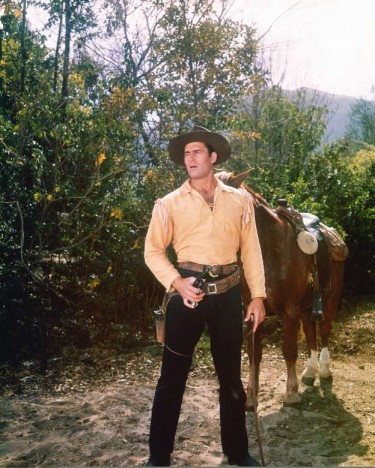
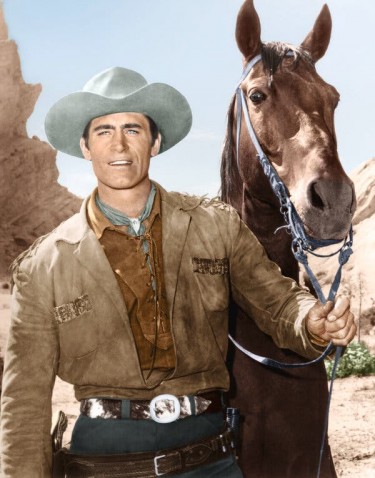
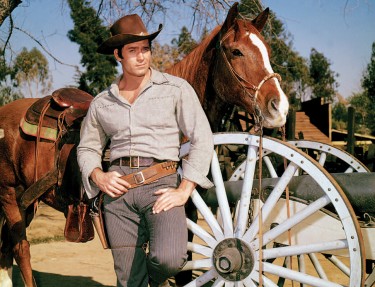
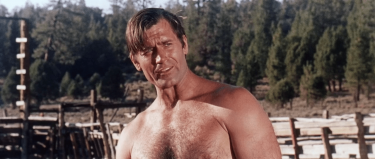
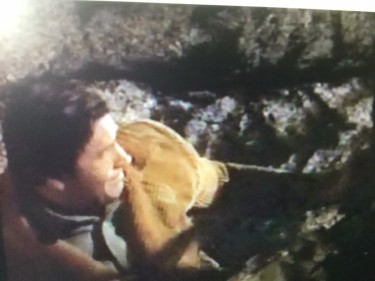
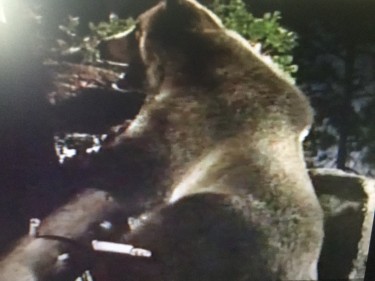
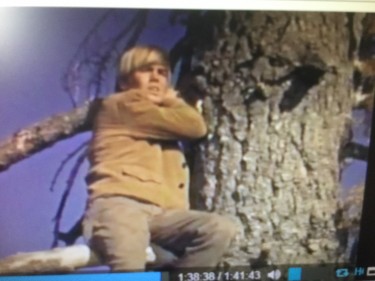
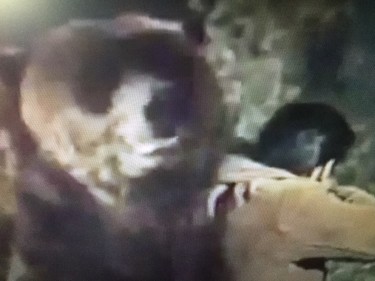
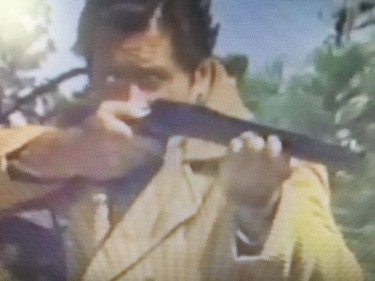
Clint Walker was a boyhood hero of mine in the late 1950s and I used to watch him in “CHEYENNE” every Saturday night on ABC Television and I loved the title song and was always singing it. Some of the early “Cheyenne” episodes were released to cinemas in Great Britain as supporting features, episodes such as “The Mountain Fortress”; “Julesberg”; “Johnny Bravo”; “West of the River” and “The Last Train West”. Because of the success of the series, Warner’s put him into three feature films, the first two of which, “Fort Dobbs” (1958) and “Yellowstone Kelly” (1959), I went to see at the picture at the time. I didn’t reckon much of the third one, “Gold of the Seven Saints” (1961). Roger Moore’s performance spoiled it. For some unexplained reason, he was cast as an Irishman, but his Irish accent kept coming and going. Why they simply couldn’t have had him as an Englishman out west is a mystery.
… [Trackback]
[…] Find More to that Topic: filmsofthefifties.com/clint-walker/ […]
… [Trackback]
[…] Find More Info here to that Topic: filmsofthefifties.com/clint-walker/ […]
… [Trackback]
[…] Find More Info here to that Topic: filmsofthefifties.com/clint-walker/ […]